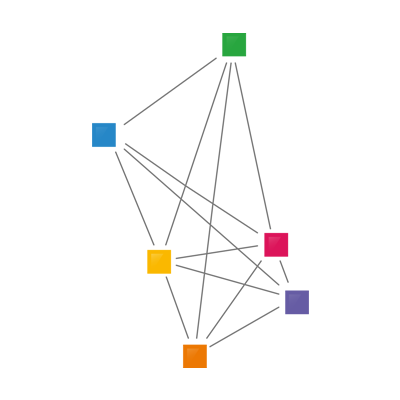IT clusters-drivers of cross-sectoral and cross-border collaboration
5 Apr 2019 12:15h - 13:00h
Event report
[Read more session reports and live updates from the 2nd Western Balkan Digital Summit]
Moderator Ms Marina Blagojević (Acting Director and Project Coordinator at ICT Network Serbia) highlighted that IT clusters in Serbia and the EU have existed for a long time and that they help economic development.
Mr Goran Poposki (Director of Sales, EMEA at ATX Networks Corp.) who serves as the board chairman and member in the Northern Macedonian ICT Chamber of Commerce (MASIT) observed that cross-cluster co-operation is important, in particular, on exchange of information on legislation and regulation. Poposki highlighted that IT and new technologies as well as the workforce that uses and develops these very solutions should be the main focus.
Poposki stressed that young companies sometimes fail to realise the benefits of an IT cluster or a chamber of commerce. Even though clusters can be perceived as groupings of competitors, they are beneficial because they allow for an exchange of ideas and resources. Poposki stressed that clusters are particularly important for conduct of business outside the Western Balkan region. Poposki stressed that digital transformation today is a natural process and it helps both entities and individuals realise their creative ideas.
Mr Branimir Dzenopoljac (Cluster Manager at ICT Cluster of Central Serbia, Board Member at Serbian Clusters Association -SCAN) noted that the production of IT professionals is important for the work of the ICT Cluster of Central Serbia. Dzenopoljac highlighted that they co-operate with other IT clusters in Serbia and that there were attempts to launch the initiative Joint Cluster Academy, a mechanism of non-formal education of IT professionals, however due to the lack of funds the project had to be scaled down to individual clusters.
Mr Vladimir Kovač (Conference Director at Webiz) said that IT clusters in general usually gather subjects from similar commercial niche. However, Kovac pointed out that the IT cluster in Zrenjanin brings together commercial institutions, educational institutions as well as organisations from Zrenjanin that have an interests to help the development of the IT industry. The cluster has been able to attract a number of IT companies and engineers to the city. One of the main objectives of the IT Cluster in Zrenjanin is to build capacities for education and educate young people. To illustrate, Kovac gave the example of two high schools in Zrenjanin that with the help of the IT Cluster in Zrenjanin were able to establish classrooms that specialise in IT.
By Nataša Perućica
Related topics
Related event

